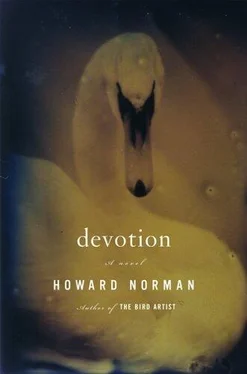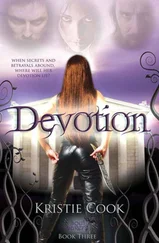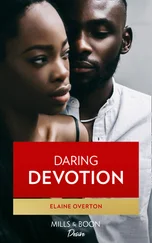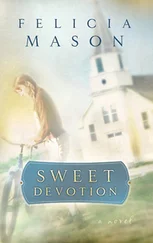“You know what? I think I’ve seen a few. In a museum. It may have been here in London. He likes to photograph eggs. Eggs and glasses of water, is that him?”
“That’s Sudek.”
“I remember an egg with a crust of bread. He might’ve gone without food some days. In childhood. During the war. Did he?”
“I don’t know.”
“I guess you haven’t researched that part yet.”
“I’ll definitely look into it.”
“Do you take a lot of photographs yourself?”
“Since I was in grade school.”
“Are you a professional, though? Along with the teaching you told me about? Not that teaching isn’t enough. Just naturally curious.”
“I’ve sold a few photographs. Not often. I consider myself a serious photographer. I have two Nikons. But my favorite is a Rollei — a Rolleiflex with an f /28 lens. It’s the kind with the viewer on top, you look down into it, like this.” He demonstrated by pretending to snap a picture of her. “All three cameras paid for in full at time of purchase.”
“So, you take photographs where, London?”
“Mainly Prague. I’ve been to Prague often. I take a lot of pictures in Prague.”
“May I see some of those?” Maggie noticed his hesitation in answering her. With the exception of his Sudek tour, ninety percent of the photographs David took in Prague were of Katrine Novak. “Just to see what the city looks like?”
“Really?”
“Only if you like.”
Maggie finished half a piece of toast, drank some orange juice. The waitress stopped by, refilled their coffee. “David, I’ve got big news,” she said. “I’m on an expense account.”
“Oh, come on. I’m not the starving-artist type.”
“So what if you were? Why should you pay for something neither of us has to pay for? Let Dalhousie University pop for breakfast.” Maggie stood up. David remained seated. “I’ve got to run,” she said.
“I’m not taking this for granted. Can I see you tonight?”
“Take for granted? Believe me, I’d see that coming a thousand miles away.” The waitress delivered the bill and Maggie signed for it. “The ensemble’s performing tonight, eight P.M., Queen Elizabeth Hall. Are you interested? I can arrange a seat directly in front of Miss Brockman and her cello.”
“I am interested, but I teach tonight.”
“What time is class over with?”
“Ten. Maybe ten-fifteen.”
David stood; Maggie leaned down and kissed him lightly. “Let’s see, there’s the reception. I’m obligated there. This and that. May I expect you in my bed by, oh, say, eleven-thirty?”
“If they’d give me the key, I’d be waiting in your room.”
“They won’t,” she said. “You’ll tell me about your class. I’ll tell you about the concert.”
“Worried there won’t be things to talk about?”
Ignoring this, Maggie said, “Tonight’s our one concert in London. Noon tomorrow, it’s off to Copenhagen. Can you drive me to Heathrow?”
“Of course.”
“I don’t take it for granted, you know.”
“You’re so beautiful I can hardly look at you, except I can’t help it.”
“Temporarily smitten, due to a successful night. No matter; I definitely, definitely want to feel beautiful when you say it. But I can’t yet. We just met, sort of. Besides, you don’t have to say it. I look in mirrors like anyone. I know what I am.”
“I could meet you in Copenhagen.”
“You don’t have a wife, do you?”
“What?”
Maggie looked toward the wide doorway. Five members of the ensemble were just off the elevator, all casually dressed, holding instrument cases and talking in the hallway. “The cars must have arrived,” she said. “I really have to get to rehearsal now.”
She joined the musicians in the lobby. In a few moments David meandered into the lobby as well. Looking through the door onto George Street, he saw Maggie get into a black town car. Some of the musicians piled in after her. A cello case was on the front passenger side. The car pulled away from the curb.
David sat in the red leather chair. He noticed that directly opposite, sitting in a kind of velvet love seat, was an elderly, unshaven gentleman. He had on a rumpled gray pinstripe suit, white shirt soiled at the collar, wide gray tie, was sockless with black shoes. He had wispy white hair, age spots on pate and hands, a boutonniere in his lapel and, oddly, a child’s zebra-stripe bandage on his left ankle. John Franco stepped in from the street, glanced at the elderly man, exchanged a few sentences in Italian with the concierge, then stood near David’s chair. John Franco was a little shorter than David, with thick black hair, sharp features. “That man there cannot meet his expenses,” he said.
“What will happen?” David asked.
“I don’t know. But first thing, the concierge, Mr. Jimmy Modiano, will somehow find him a pair of socks — maybe maid service found one. Mr. Jimmy always sees the human being. The heart beating. He won’t allow a patron of our hotel to go into the manager’s office without socks.”
“For the dignity of all concerned,” David said.
Though it had been John Franco who’d been indiscreet to begin with, now he apparently took offense. It was as if David had presumed to share his approval of a time-honored code of ethics held exclusively between doormen and their concierges. John Franco sneered with his upper lip, all cordiality gone up in smoke. “If that is how you choose to think of it,” he said. He walked over and stood next to the concierge. He rigorously cleaned his eyeglasses with a handkerchief, which he tucked back into his uniform’s breast pocket in three quick movements, flattening it with a sweep of his thumb. David, as if puppeteered by discomfort, shrugged his shoulders in an exaggerated manner, stretched, faked a yawn. John Franco, with annoyed perplexity, stared at him.
David had simply wished to sit a while longer. To let the life of the lobby quietly go about its business, to be both part of it and an observer of it. Maintaining perhaps the artistic distance of a photographer.
“Can I get you a taxi, sir?” the concierge asked. With this, David relinquished his chair. He walked to his apartment building. His was a nicely appointed flat, with plants along the inside windowsills, lots of books, an antique quilt on the bed, old-style steam radiators, their white paint flaking. David sat on the bed. Wash your face, he thought, giving himself instructions on how to kill time. Maybe go back to the hotel bar — have a cup of coffee — it’s okay, stomach feels a lot better, doesn’t it? — look directly at that doorman John Franco when you walk past — wait it out — it’s just a matter of waiting — it’s just a wait of a day and part of a night — it’s just a wait until 11:30.
In class that evening David lectured on a photograph by Sudek, Bread and Egg. The photograph depicts a grainy egg set against a piece of bread, which itself is set in relief, offering its sliced side. As the class studied the slide of Bread and Egg on the pull-down screen and took notes, David continued to speak, consciously avoiding the term “basic necessities of life,” even though bread was involved. He spoke about the photograph within the trajectory of Sudek’s thematic obsessions. He also pointed out the sculptural qualities of the composition, how the surface of the crust of bread seemed etched, crosshatched — that is, had what appeared to be an almost geological history.
Though he lectured each semester on Sudek’s work, and so already had slides prepared, he originally had planned to discuss a Paris photograph by Brassai. But Bread and Egg, taken in 1950, was the work Maggie had referred to at breakfast, and that was the entire reason for his change of mind; it was a way of keeping her close. After class David sat in the classroom staring at the unfinished letter to Katrine Novak, which he set out on a desk like an important exam he suddenly could not remember studying for. He tore up the letter and dropped its confetti into the wastebasket. Life, he thought — indeed, using the word “life,” not “circumstances” or “things”— in just the last twenty-four hours has taken an interesting turn, hasn’t it? I’m gone over this woman. I’ve heard of this happening to other people. I’ve read of it.
Читать дальше












